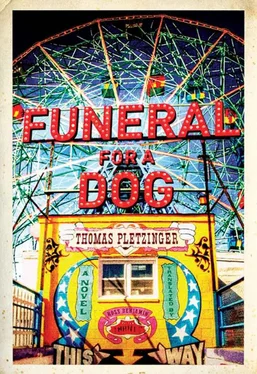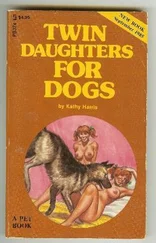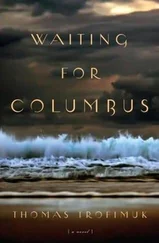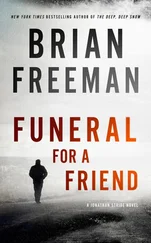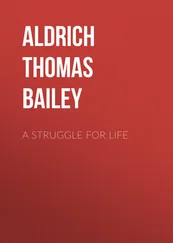I break off,
because the boy’s voice suddenly seems to enter the house downstairs, and in this house, too, doors are opened suddenly and without knocking. I won’t get myself caught. I remember Elisabeth and me, purely professional and businesslike: in the spring of 2002 in the Renault on the way back from the Côte d’Azur. I drove and Elisabeth read me articles from the culture pages of Die Zeit (her still-husband had just gone into retirement). Then she switched to the road map. The Renault had already been sputtering for a few days and burning more gas than usual. After an eight-hour drive on coastal roads and toll highways we reached the Lyon city highway around midnight (we were looking for the Hotel Imperial, which her writer friends had recommended to us). Through a tunnel, said Elisabeth, then down and two lefts (her freckled feet next to the dashboard gearshift). The engine conked out. Because there was no shoulder, I steered the Renault on its last legs onto an emergency strip in front of the entrance to the tunnel. While honking French people passed on the right and left, we let the engine cool down and drank warm mineral water (we spoke about marriage as a possibility). The telephone interrupted us, and Elisabeth’s husband mentioned a position he’d heard about on the culture staff of the weekly newspaper (they had meanwhile become friends). Starting when? asked Elisabeth, and he answered, starting now.
Lyon Garage
In my head this image remains: Elisabeth and I on a whitewashed boundary stone in front of a Renault-authorized garage on the outskirts of Lyon, she was sitting on my thigh. In the garage two burly Frenchmen were working with gum in their mouths and disparaging looks in their eyes, they were repairing the engine. Elisabeth had briefly negotiated the prompt repair and an appropriate payment, now she was taking pictures of us (the euphoria of her imminent promotion). She photographed us in the windows of the office (in the garage yard, white pebbles and a tall linden). The first photos of us as a couple, in the background three new cars and an agricultural utility vehicle. Would it be okay with her if I remained a penniless academic, I asked, and Elisabeth took my head in her hands. Not for long, Daniel, she said, and photographed our kissing tongues, you could write for me! The mechanics didn’t take their eyes off us (they’d never seen anyone like Elisabeth before).
Barbaresco
Elisabeth speaks fluent French and Italian, a smattering of Polish. Nothing’s going to get in our way, she’d decided, and I’d agreed (the feeling of knowing the other). A few days after my first day of work in her editorial department we traveled to Berlin for some British writer’s book launch, Elisabeth was supposed to moderate and lead the discussion to follow. The Literaturhaus in Wilmersdorf was sold out, it was Elisabeth’s first appearance of this sort and magnitude, she nonetheless seemed not the least bit nervous. Not even when she was told that the simultaneous interpreter was stuck at Tegel Airport. She stepped onto the stage before the author, I was sitting in the second row and drinking Barbaresco (at Elisabeth’s recommendation). I was sure that I knew my wife and her history, but when she opened the event and invited the author onto the stage, I choked on the wine. I was flabbergasted by her perfect British accent. I’d never heard her speak English before.
things that are worth it
It’s my indecisiveness that I become aware of as I lie on Svensson’s mattress and listen to the footsteps on the stairs. I hesitate because a decision makes every other path impossible (we’ve never had to make final decisions). I came here to write an article about Svensson, instead I’m thinking about other things: Tuuli is a mystery, Elisabeth is my wife, Svensson has committed himself to things. I, too, should exchange my thoughts for something concrete: find out the recipe for the chicken soup, touch the dog, gather the wilting oleander flowers, renovate a ruin. I should pull myself together, I should be more precise. I should reflect on my work approach (my pitiful methods).
— What exactly are Borromean rings?
— Is another life a better life?
his shirts
Is anyone here? On the top landing the oil-covered gull in the pictures is first dead, then awakens laggingly and gradually to life as I descend the stairs. Next to those are pictures of the heavy, black dog: Lua with bandaged stump on a Brazilian beach, a cliff with a hole through its base in the background, Lua wearing a hood on a hotel bed, Lua on cracked concrete slabs, in the background Manhattan and the column of smoke (we’d discussed the Thomas Hoepker image and its supposed actuality in the editorial department). Finally the framed pictures of garbage: blue and black sacks, burst-open plastic bags, overturned cans, knocked-over dumpsters, shattered bottles, soaked-through paper bags, beer cans and plastic bottles, cardboard boxes, a naked doll without arms, lamps, armchairs, solitary shoes. But then there’s the kitchen, cleaned up, sun on the tiles, flowers on the table. From the fridge Tuuli and Blaumeiser are smiling at me (death is everywhere).
Svensson? Is anyone here?
Another look at Svensson’s white room: in the small mirror on the wardrobe my shirt and I look equally rumpled. I’ll jump in the lake and iron myself out, I think, and take a white shirt from the wardrobe. Svensson will notice (I don’t care). I take a towel from a wooden shelf, it smells like laundry detergent, on it is a disintegrating piece of embroidery, white on a white background (Hotel Turisti).
the animals and us
Lua doesn’t move. I take off the creased shirt and imitate Svensson, I have only enough strength for seven push-ups and seventeen sit-ups. Then I lie on the dock breathing heavily (no trace of the animals’ blood). It must be eleven o’clock, the sun is burning on my shoulders and my head (lizards on the stones). A thin water snake between the stones, a school of tiny fish (a mosaic of escape). I kneel down next to Lua in the oleander flowers. What I couldn’t make out through the binoculars: his fur is dull with scattered gray, the longer hairs on his chest are matted and pale. Lua is lying on his side, his eyes half closed. His mouth is hanging open, his jowls are blotchy and dry (Lua smells putrid). From up close the dog is much thinner than expected. In the shallow rhythm of his breaths his ribs stick out, the fur on his belly hangs down in tangles (an old and ill-fitting suit). His strangely thin neck seems no longer capable of holding his head. I examine Lua’s stump. The leg wasn’t amputated with clean cuts and cleanly sutured flaps of skin, but rather severed close to the body. What remains is a rough and crudely healed web of scars (Svensson wrote of a bolt cutter, and Tuuli speaks of her first amputation). Lua’s left ear is flopping open, here too lighter skin, scabby and mottled (a small white spider slowly crawls inside).
I need your help, Mandelkern.
Suddenly Svensson is kneeling next to me and putting his hand under Lua’s bony head. His eyes are bluer than usual, almost watery. Lua hasn’t eaten anything for days, he says, I have to bring him to the vet in the village (the soft clucking of the widowed hen). When I look around, Tuuli and the boy are also standing behind me, though I didn’t hear them coming. This morning Tuuli is wearing a bright green short-sleeved dress that I haven’t seen on her yet. In it she doesn’t have the laxness of our first encounter, she looks more deliberate and older (as I look up: the heron far out over the lake). Tuuli spreads a wool blanket on the ground. The boy is waiting for the departure with the yellow fishing rod in his hands, he’s wearing a children’s life vest and Svensson’s Lakers cap. By the time I’m nodding at his request, Svensson has already jumped in the water and is swimming to the boat moored to buoy 1477. He hoists himself over Macumba ’s railing and starts the motor. Svensson overlooked his freshly ironed shirt and his towel in my hand. You should help him with the dog, Manteli , says Tuuli, and as Svensson maneuvers the boat with a quiet motor to the dock, I catch the rope as I did on the Lugano pier. Tuuli kisses the boy on his forehead, älä pelkää , Samy. Minä en pelkää, Äiti , whispers the boy, he’s not afraid. Then he climbs into Svensson’s outstretched arms. Tuuli and I roll Lua onto the wool blanket, and the three of us lift him onto the bow, the swan hisses. Once the disconcertingly light dog is finally lying in his spot and the boy with his fishing rod is sitting next to him, Svensson nods to us, Tuuli should take a seat in the stern with him, I in the bow (the sluggish movement of the remaining legs). But Tuuli shakes her head:
Читать дальше
